R U OK? acknowledges the Traditional Owners of the beautiful lands on which we live and pays respects to elders past and present. R U OK? acknowledges the pain and suffering of First Nations people and the higher rates of suicide in Aboriginal and Torres Strait Islander communities.
R U OK? IN ABORIGINAL & TORRES STRAIT ISLANDER COMMUNITIES
If someone you know is doing it tough, they won’t always tell you. Sometimes it’s up to us to trust our gut instinct and ask someone who may be struggling with life, 'are you OK?', in our own way.
By asking and listening, we can help those we care about feel more supported and connected, which can help stop them from feeling worse over time. That's why this campaign has a simple message: Ask your mob, in your way, R U OK?
Aboriginal and Torres Strait Islander Peoples share a special connection to Country and to each other, through culture, community and shared experience. Regardless of where we live, or who our mob is, we can all go through tough times, times when we don’t feel great about our lives or ourselves. That’s why it’s important to always be looking out for each other. Because we're Stronger Together.
The resources include videos, posters, a conversation guide and more to encourage people to engage and offer support to their family, friends and colleagues who may be struggling with life.
CONVERSATION GUIDE
HOW TO TALK TO THEM ABOUT HOW THEY'RE REALLY GOING
The conversation guide contains tips to help you ask your mob, in your way,"are you OK?" Aboriginal and Torres Strait Islander peoples share a special connection to this country and to each other, through culture, community and shared experience. Regardless of where we live, or who our mob is, we can all go through tough times, times when we don’t feel great about our lives or ourselves. That’s why it’s important to always be looking out for each other.
CHERBOURG COMMUNITY STANDS STRONGER TOGETHER
The Queensland community of Cherbourg has become a beacon of hope and resilience in the face of the devastating impact of suicide, particularly among its young people.
In response, Cherbourg has taken steps to integrate R U OK? into their every day, establishing initiatives across schools, local organisations, and communities to promoting mental health awareness to encourage open, supportive conversations.
You can learn more about the incredible story of the Cherbourg community and how they are standing Stronger Together against suicide by watching this video or reading their story on the R U OK? Chit Chat Channel.
Posters
ASK YOUR MOB, YOUR WAY, R U OK? - POSTERS (A4)
Our 'Ask your mob, your way, R U OK?' poster series shares practical tips and the ways mob around the country ask, 'Are you OK?'. The posters are A4 size.
Contact
us
if you want print ready artwork.
EMAIL SIGNATURE
MOBILE PHONE BACKGROUNDS
Use our phone backgrounds to remind yourself and your mob to connect and yarn.
Join our Stronger Together community
MOB WAY R U OK? PODCAST SERIES
In this podcast series we yarn with well-known and everyday First Nations people on their experiences, how we open up in our own way, how we have conversations and ask that simple question, 'are you OK?'. Because we are Stronger Together.
You can listen to the episodes here or wherever your prefer to find your podcasts.
CENTRAL AUSTRALIAN LANGUAGE TRANSLATIONS
R U OK? has worked with communities in Central Australia to share the R U OK? message in Arrernte, Luritja, Pitjantjatjara and Walpiri languages. Click here to download the Languages of Central Australia resources
VIDEOS
Aboriginal and Torres Strait Islander women share how they ask, 'are you OK?', why it's important and how it makes them feel. The videos are free to download and share.
R U OK? has shared the voices of LGBTIQ+ SB communities
Edwin Fejo is a proud Larrakia person. Edwin is a performer and has a passion for singing. Edwin shares the impact of an R U OK? conversation and how your mob and Elders can be a valuable support network for someone who is struggling.
Crystal Love (She/her) is a mentor to the Sistergirl community of the Tiwi Islands. Crystal shares her own experiences of being transgender and how support and kindness can make all the difference in someone’s journey. Crystal shares how a friend asking ‘are you OK?’ encouraged her to seek support.
Cameron McBroom (He/him) is a Wongatha Yamatji queer man from Kalgoorlie, Western Australia (Wongatha Country). He shares how sporting communities and workplaces can celebrate the diversity of their people.
Edwin Fejo
Larrakia
Crystal Love (she/her)
- Tiwi Islands
Cameron McBroom (he/him)
Wongatha Yamatji
In these videos, mob share the various ways they ask, 'Are you OK?'.
"If I can connect with them, I can connect with me"
Aunty Dawn connects with her mob when she senses something is going on in somebody's world.
Offering a listening ear and a helping hand
Taz offer practical help to his mob when he checks in.
Yarning and listening helps
For Kirk, a cup of coffee and a friendly chat to his mob lets them know he is there for them.
"Come, let's yarn eh"
Troy shares how he asks R U OK? of his mob
Let's share, we're stronger together
Karen asks her mob, 'which way, what's up?'
"You right, or what?"
Kevin on the importance of being loved and cared for.
Sometimes we just need to talk
Emma shares her way of asking R U OK?
FIND HELP
It's often hard to talk about how you feel, but is there someone that you trust you could yarn to? That can really help.
13YARN (13 92 76)
is the first national crisis support line for Aboriginal and Torres Strait Islander people.
Designed, led and delivered by mob, 13YARN provides a confidential 24/7 one-on-one yarning opportunity with a Lifeline-trained Aboriginal & Torres Strait Islander Crisis Supporter.
You could also connect with a trusted health professional, like your doctor or your local Aboriginal or Torres Strait Islander Medical Service. If you need immediate support, click on Find help for 24/7 services.


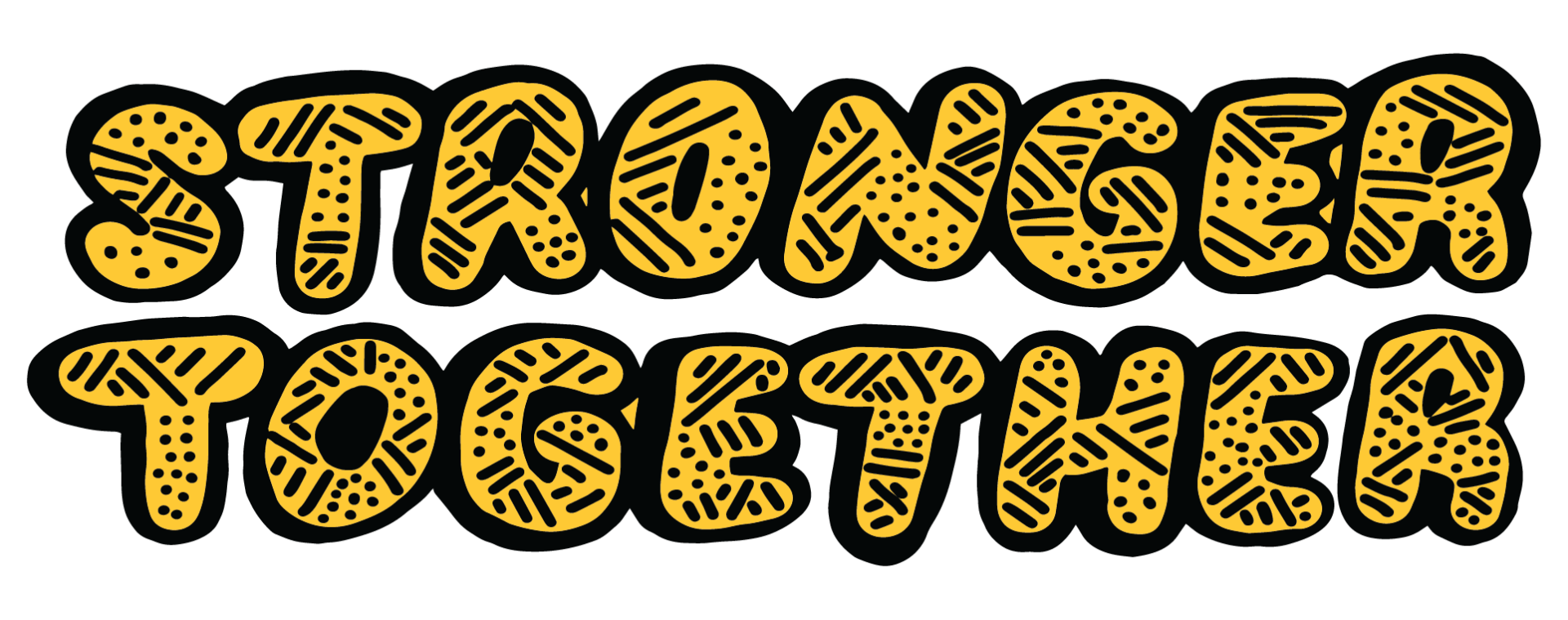
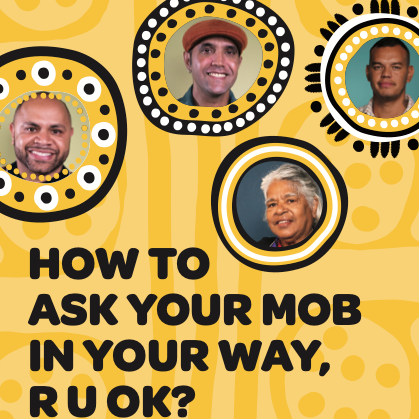
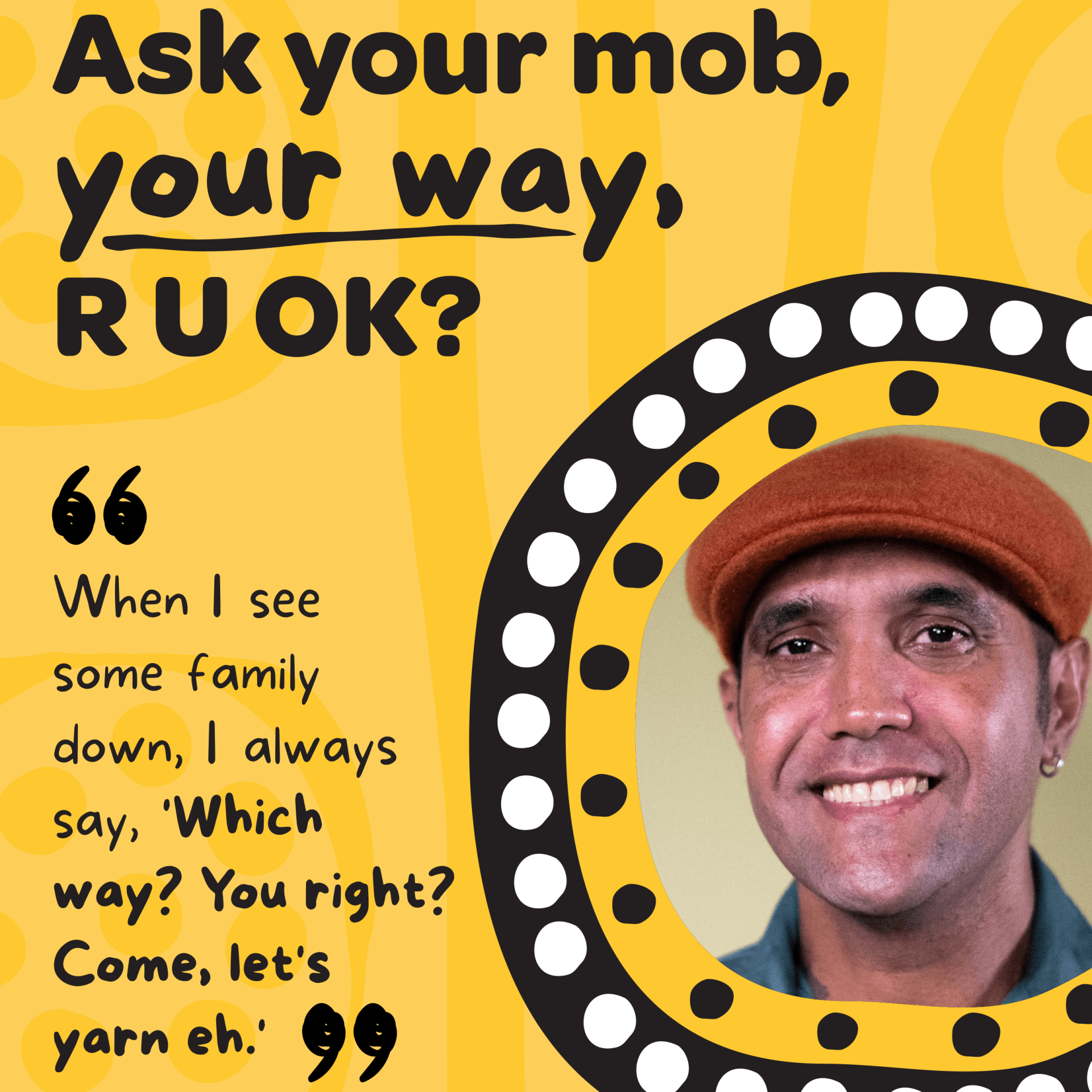
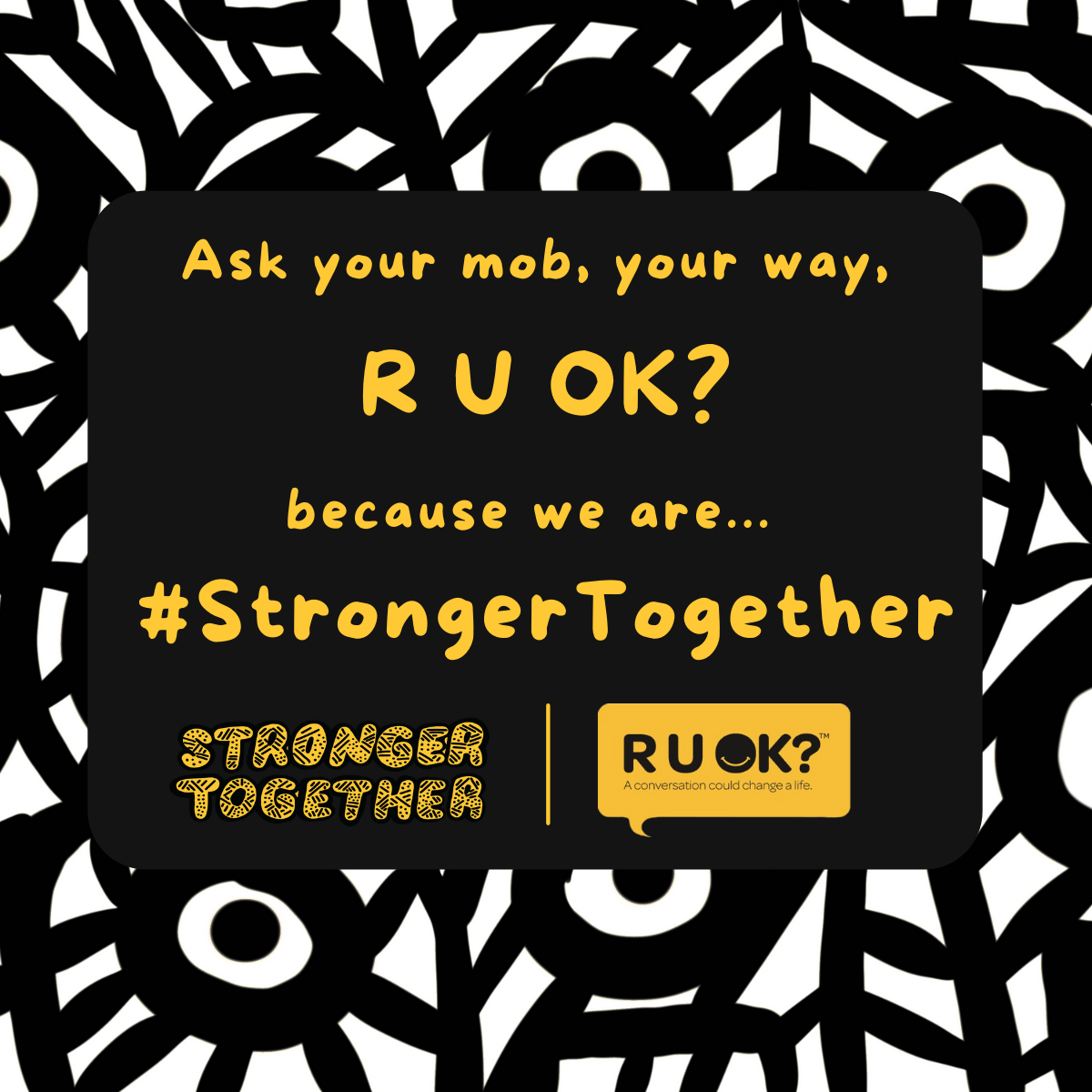
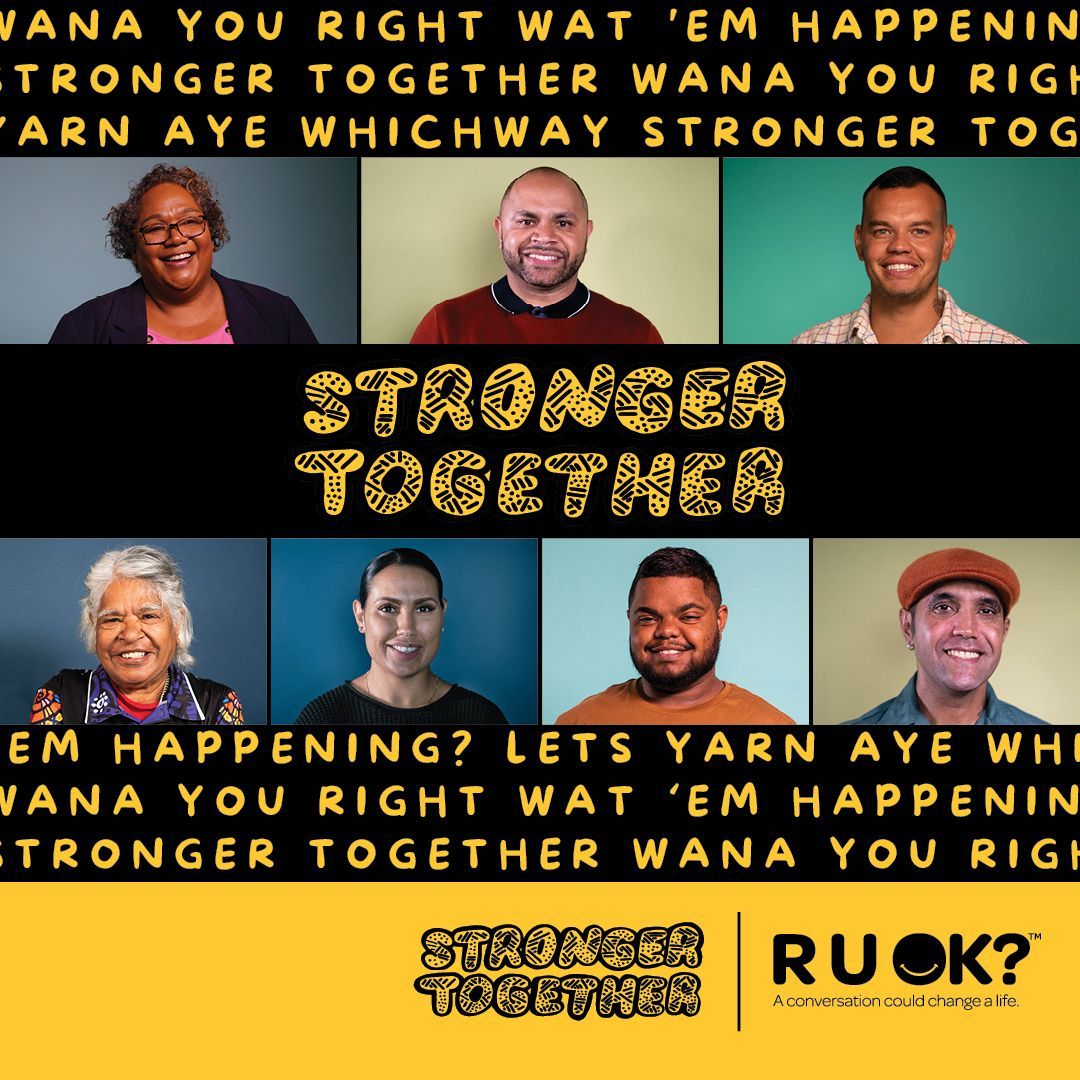
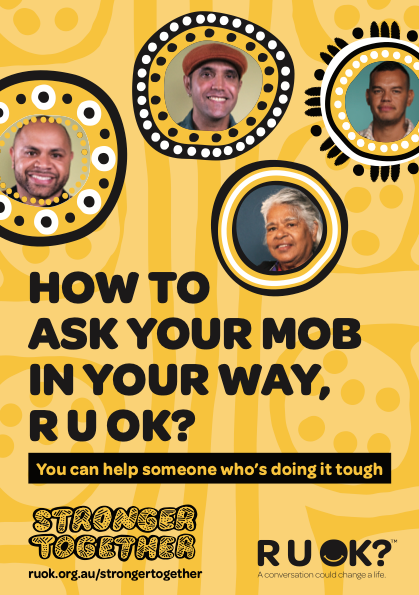
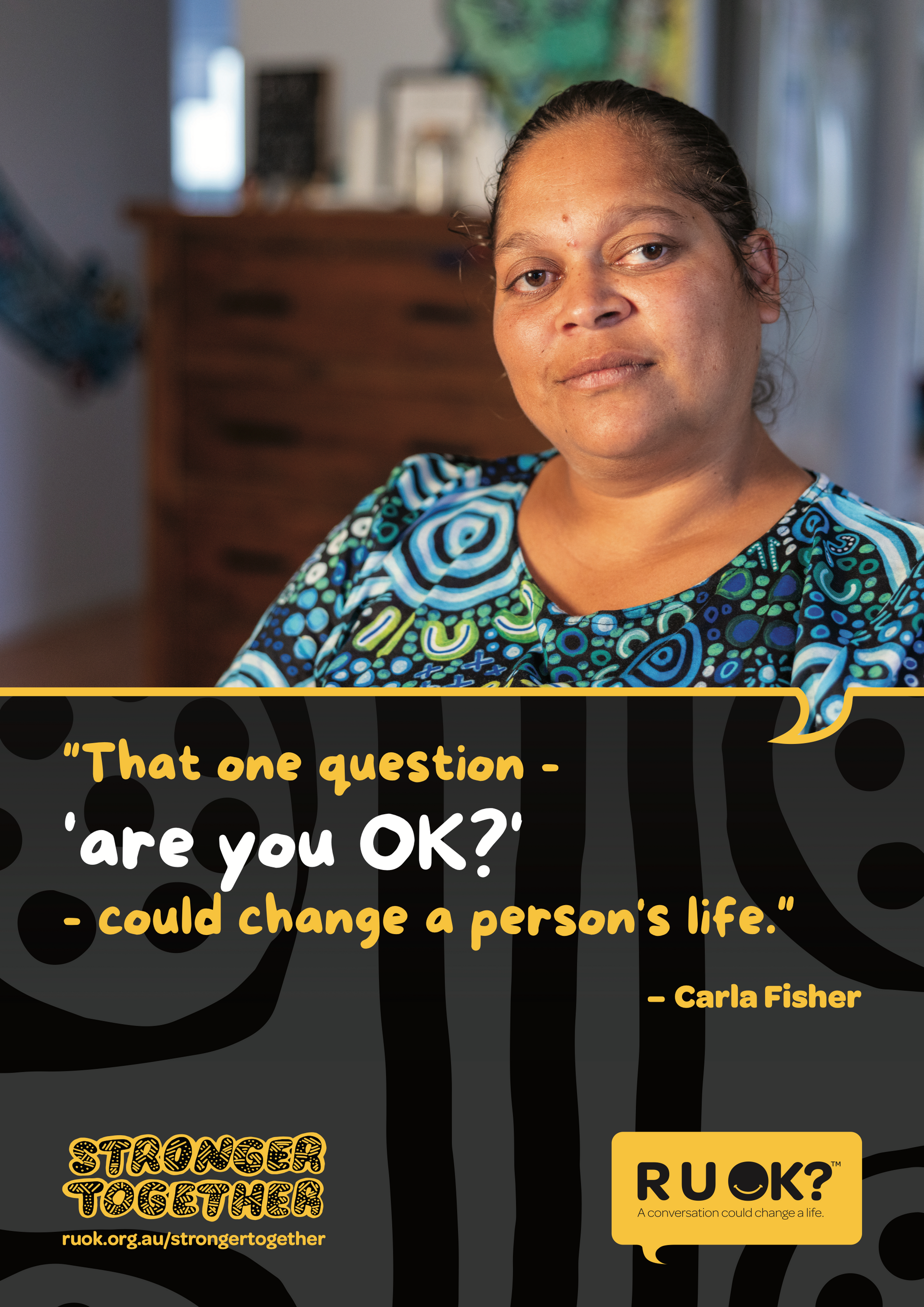
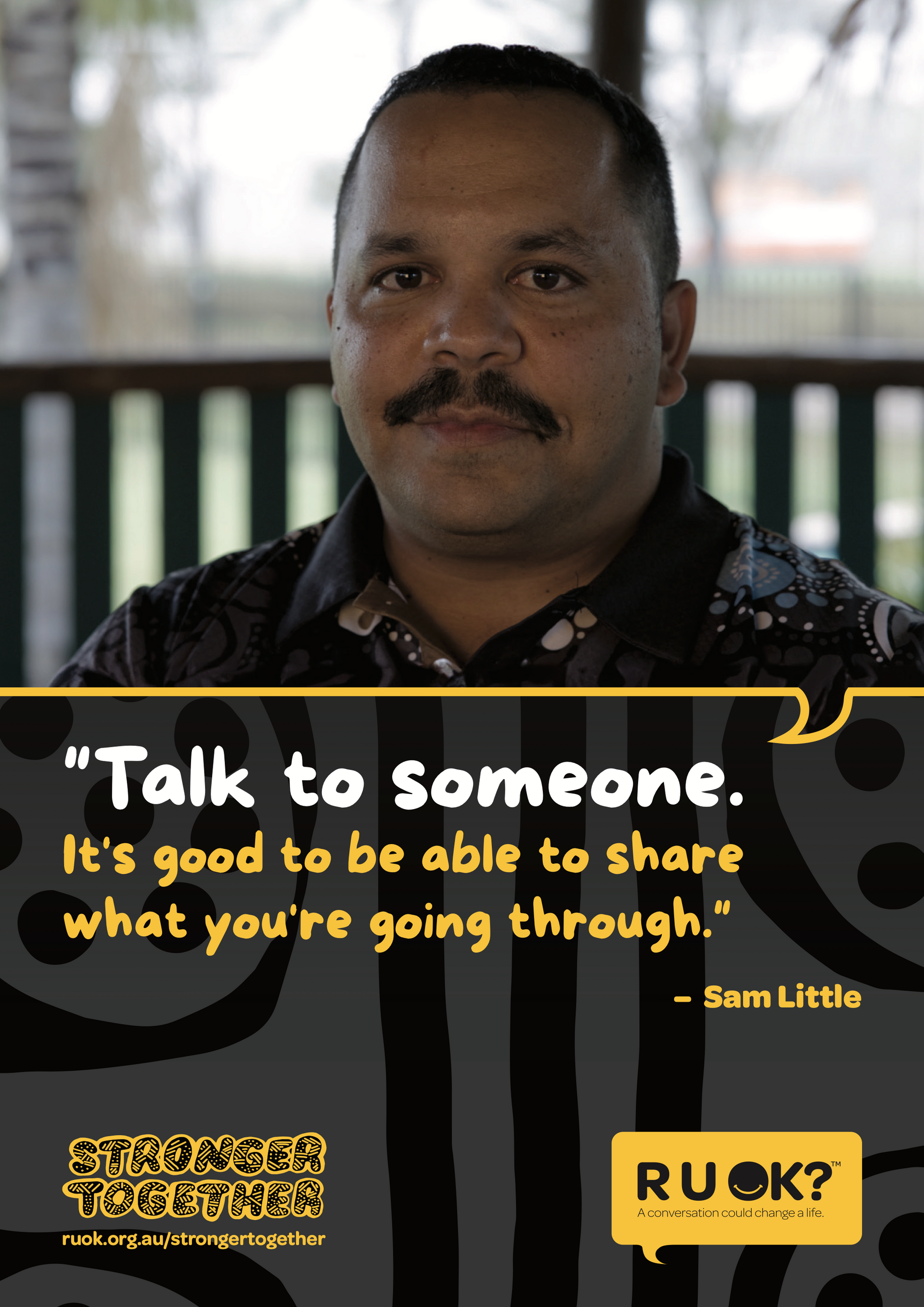
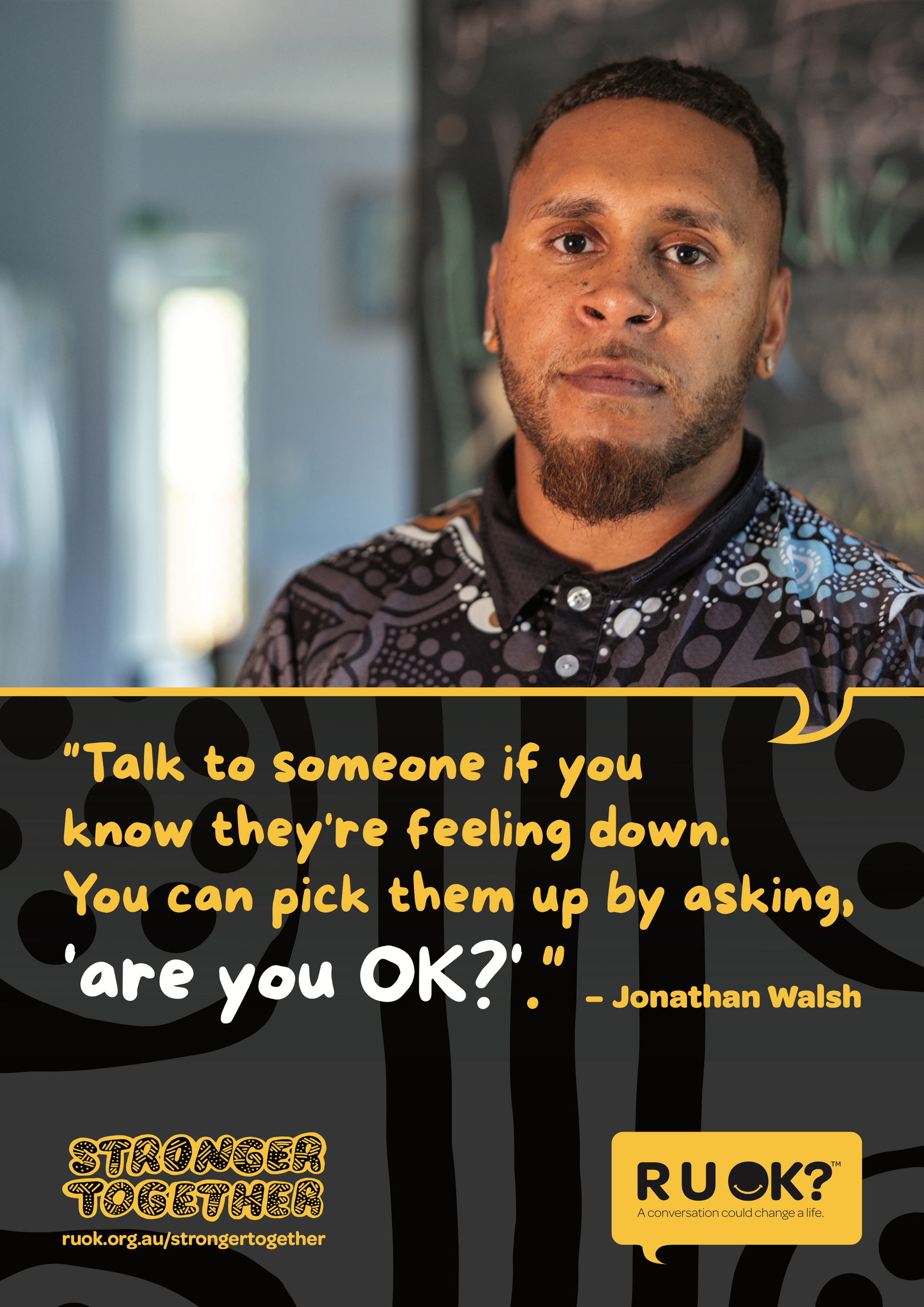
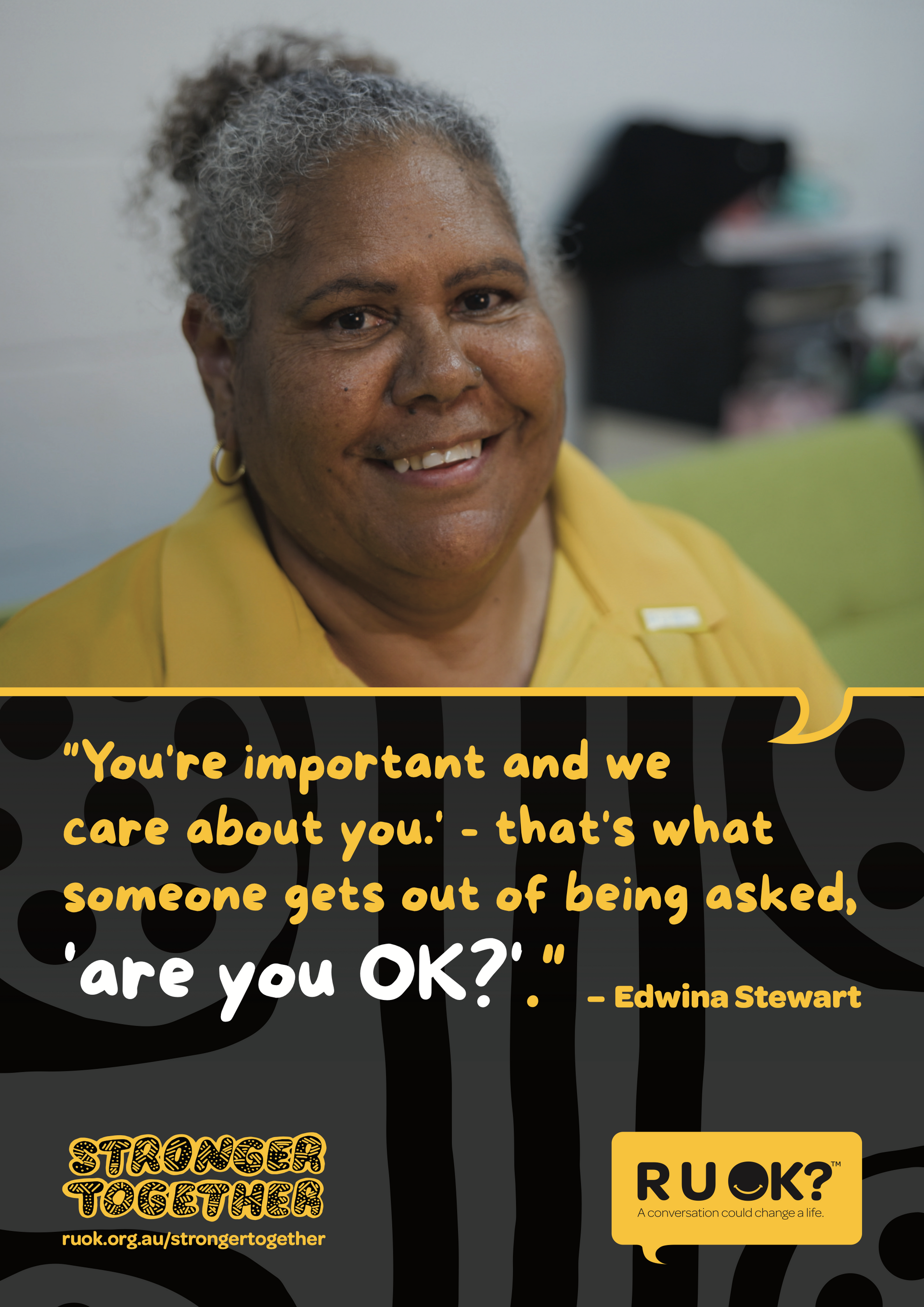
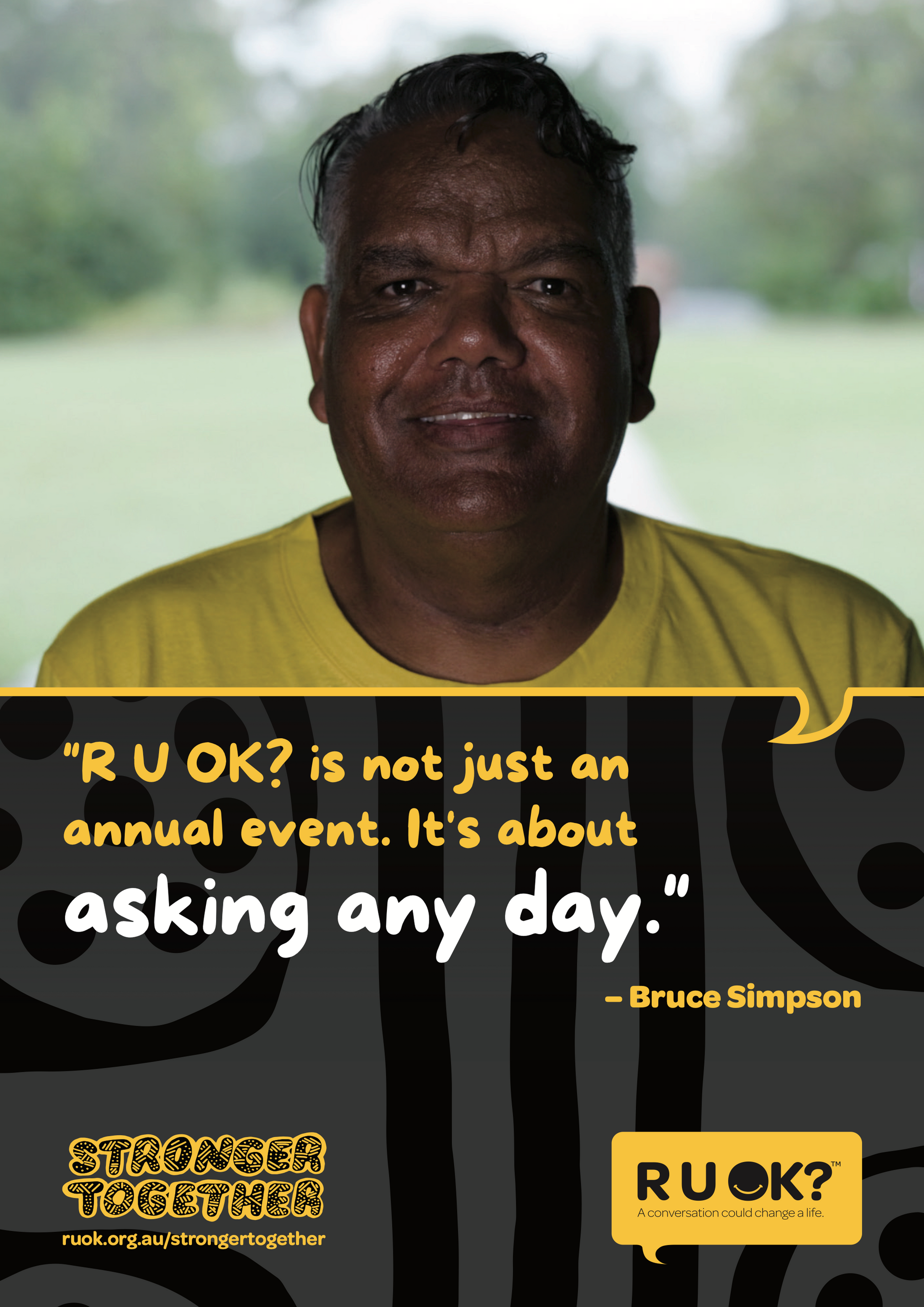
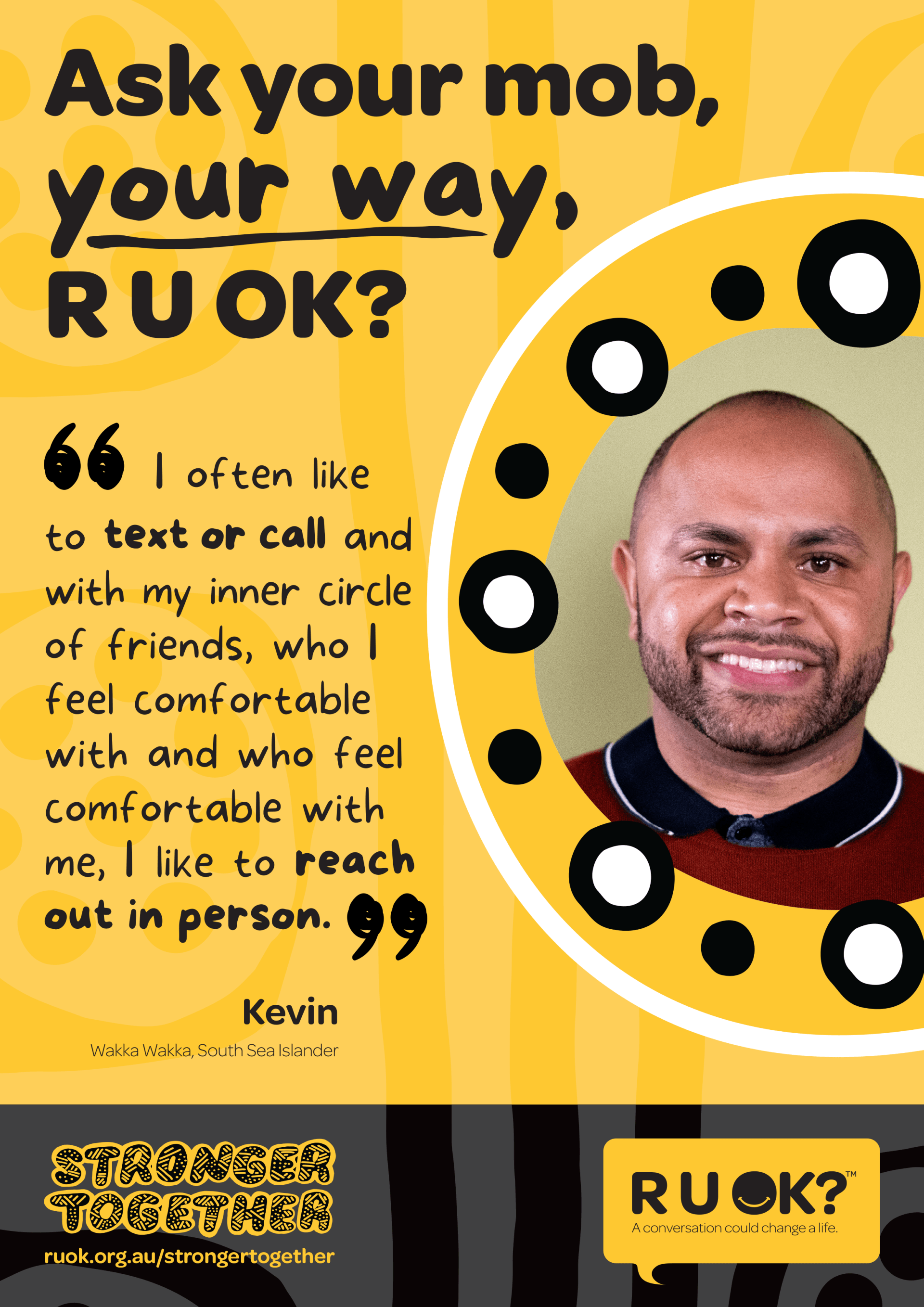
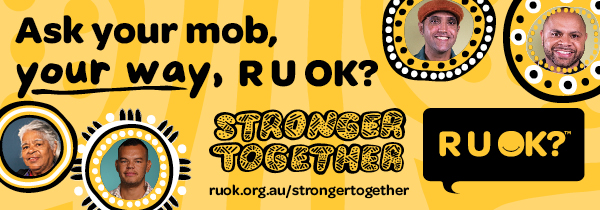
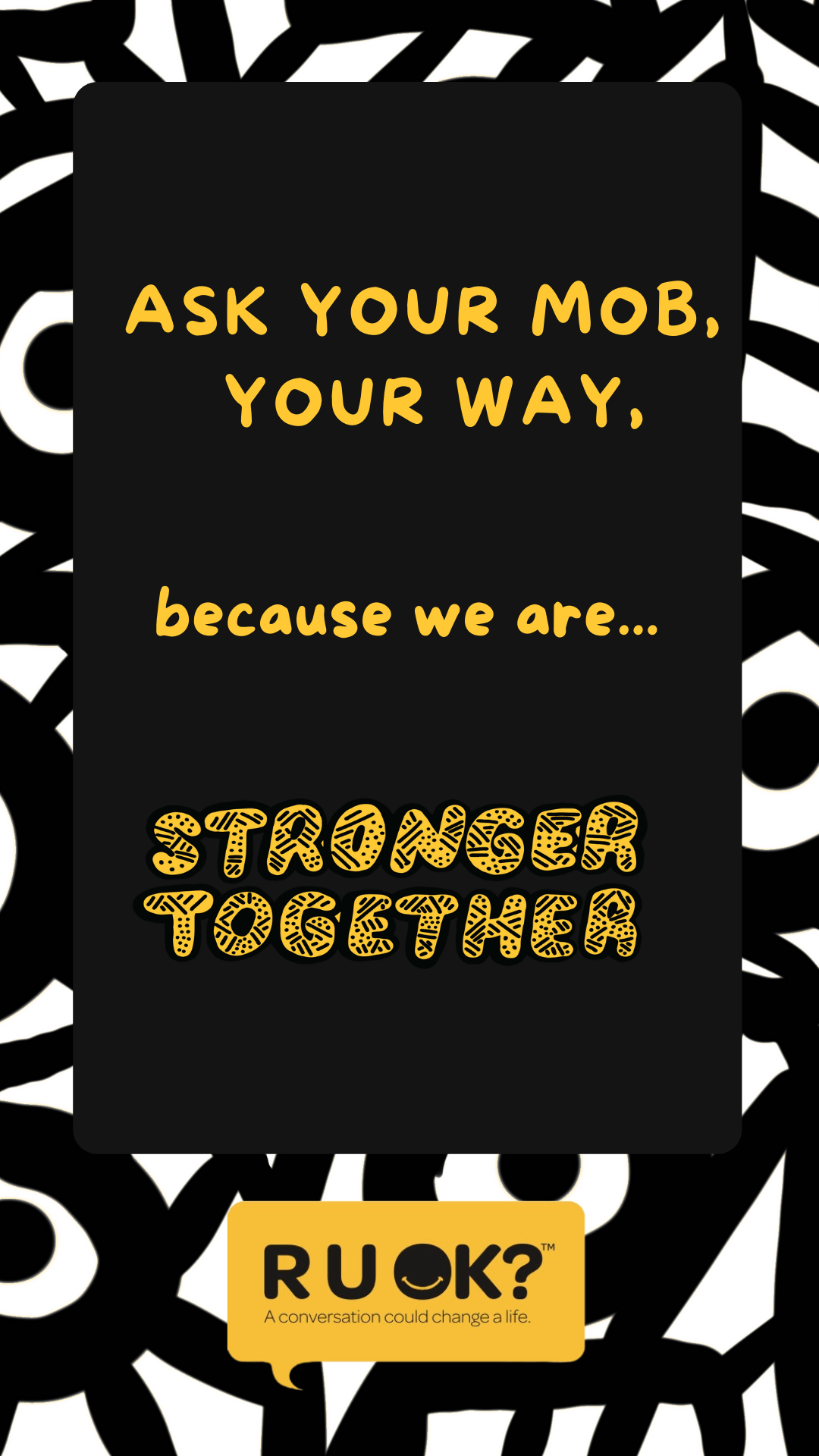
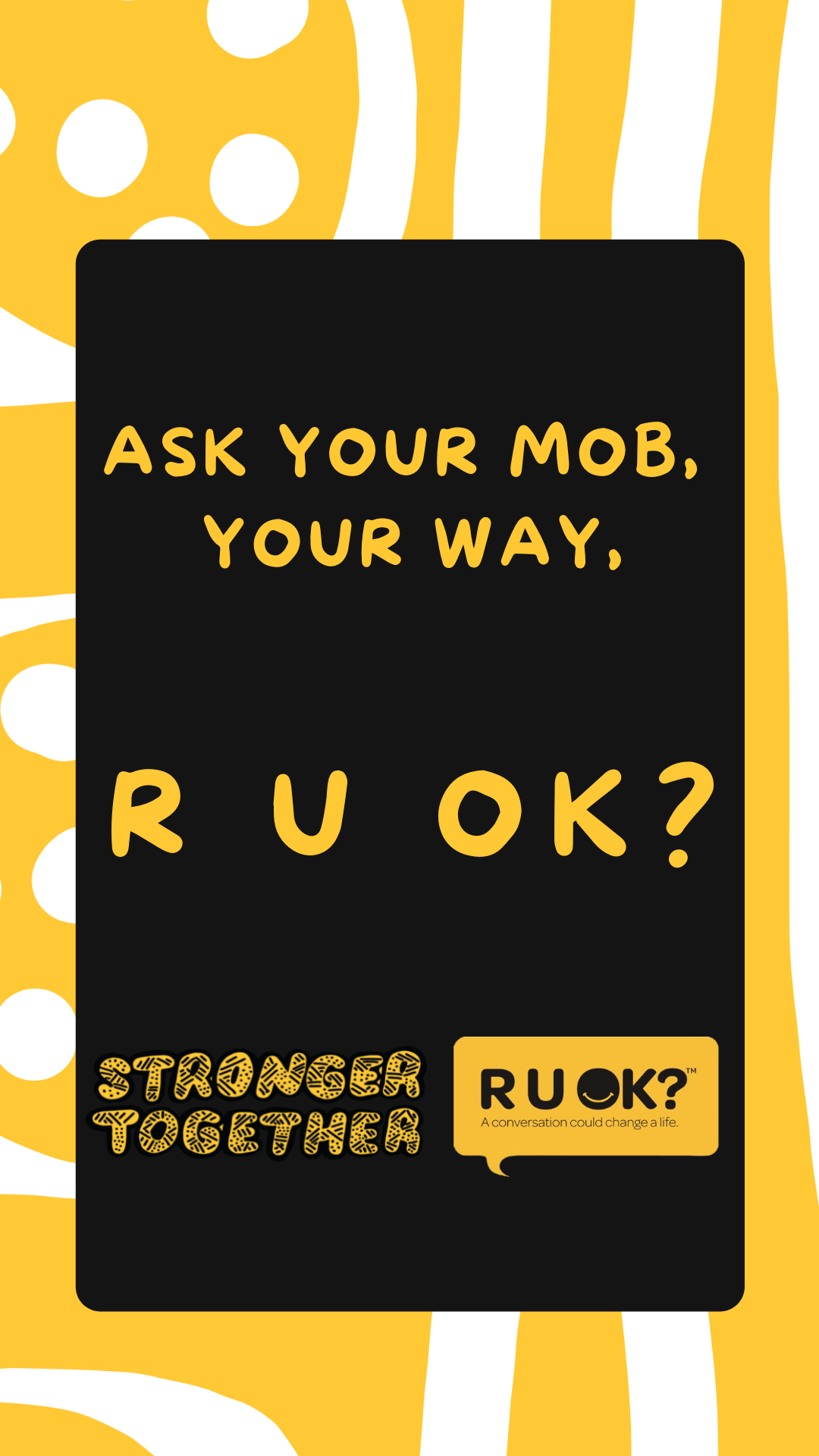




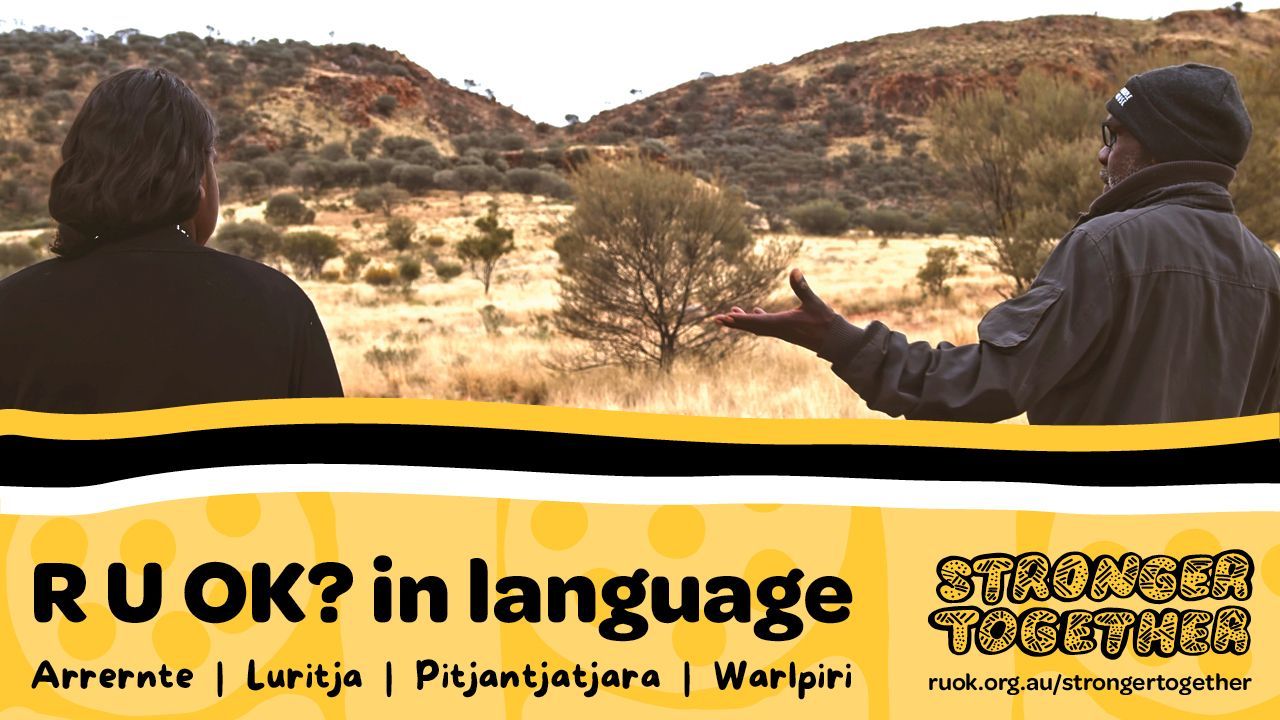

















SOCIAL MEDIA TILES
Share our social media tiles to encourage everyone to check in on each other and discuss the ways they ask R U OK?